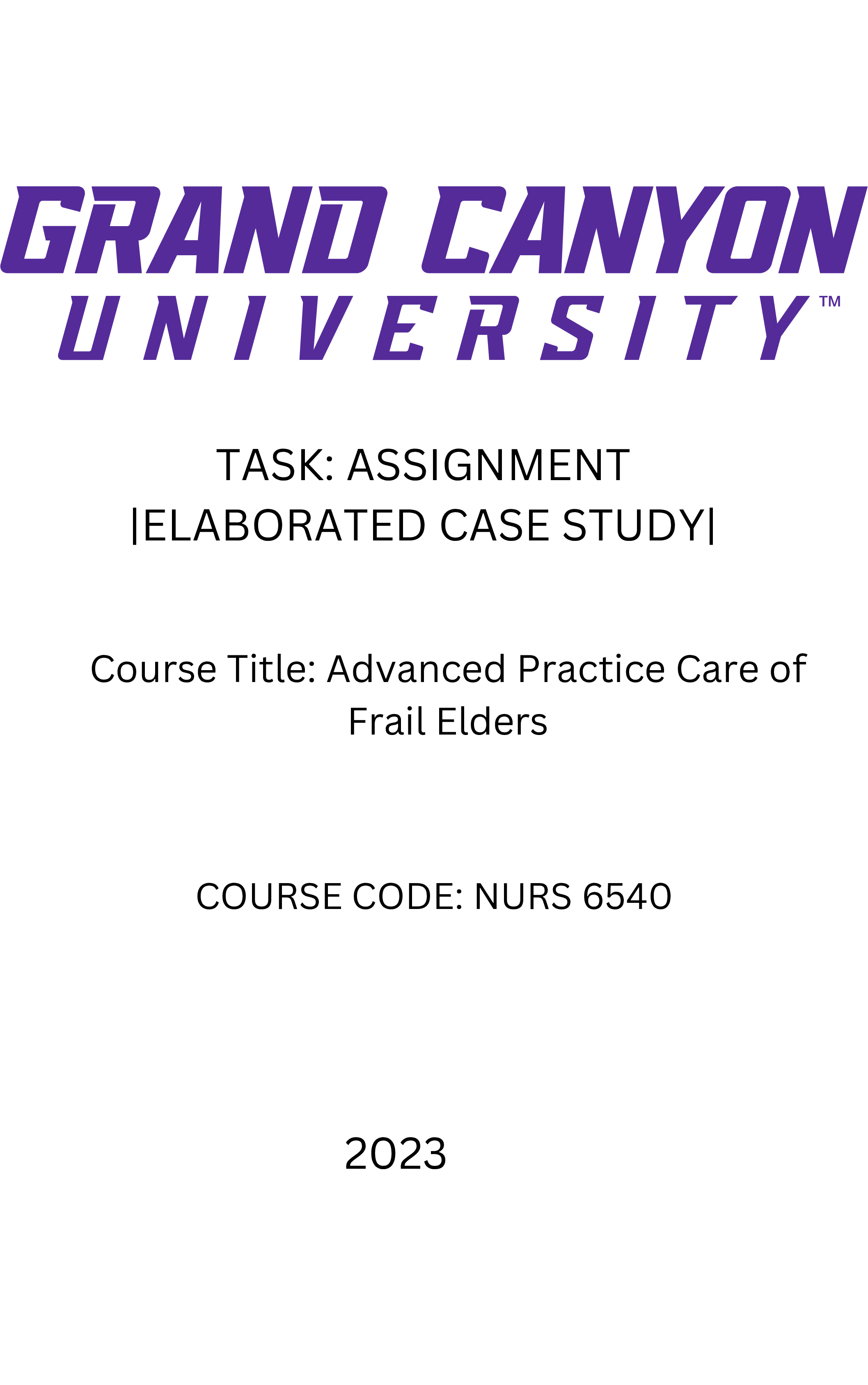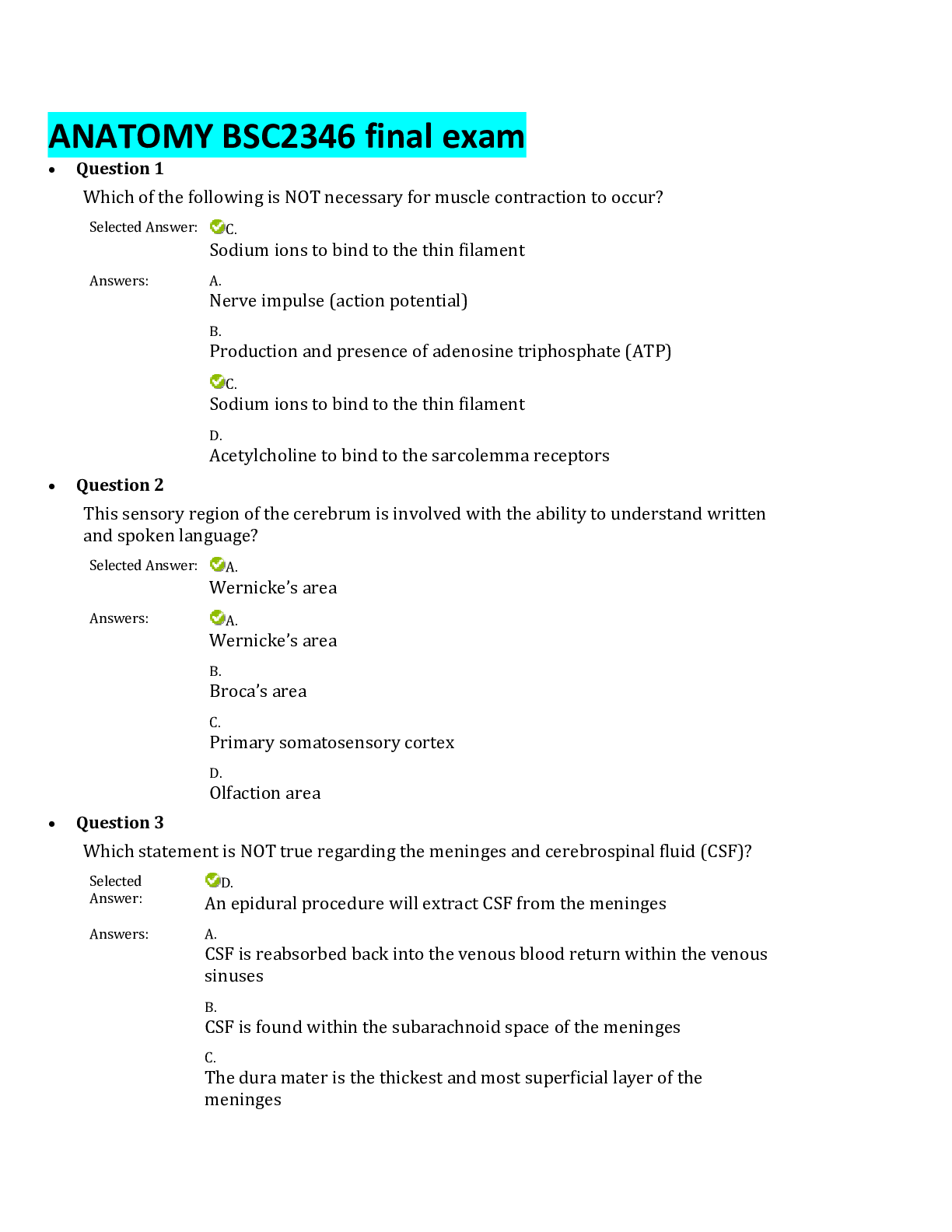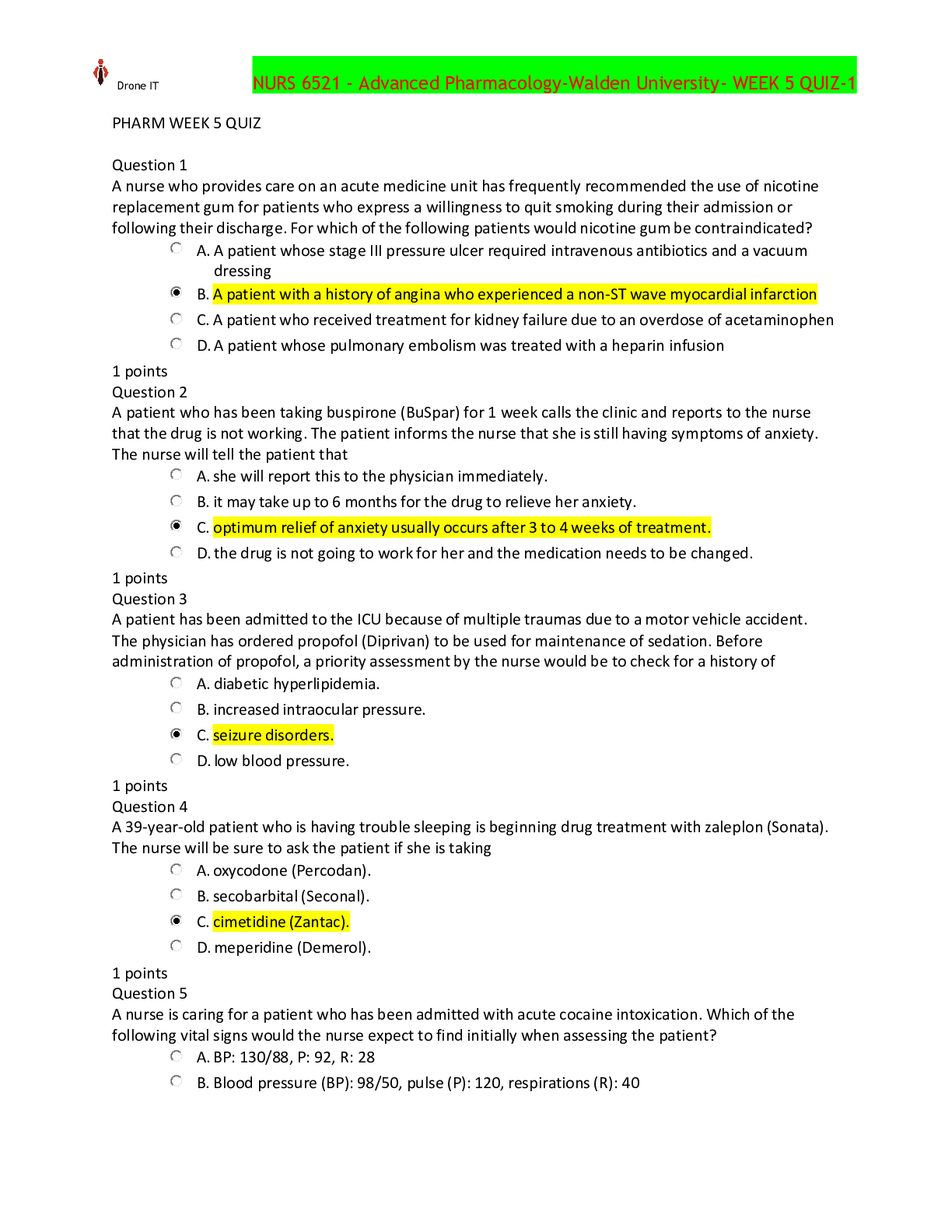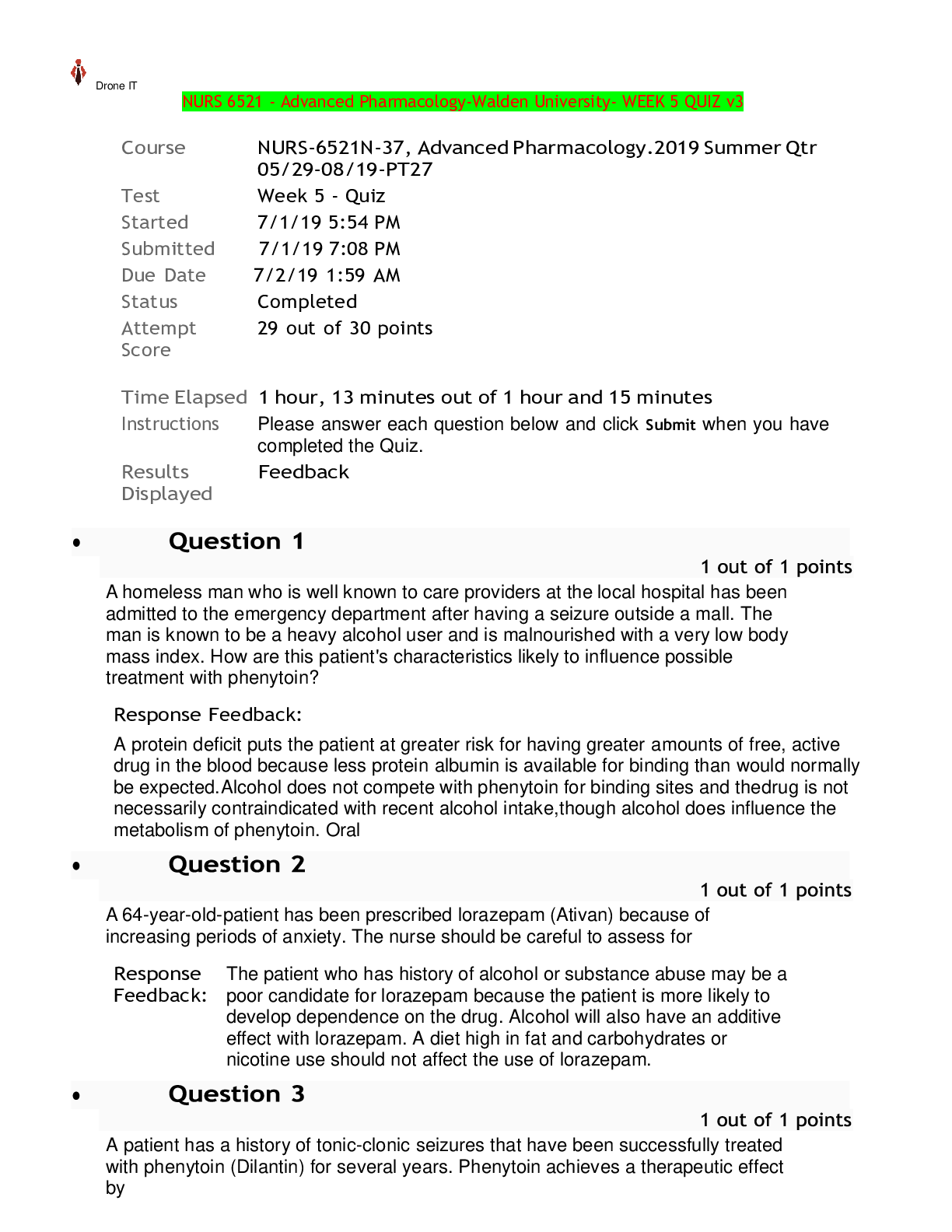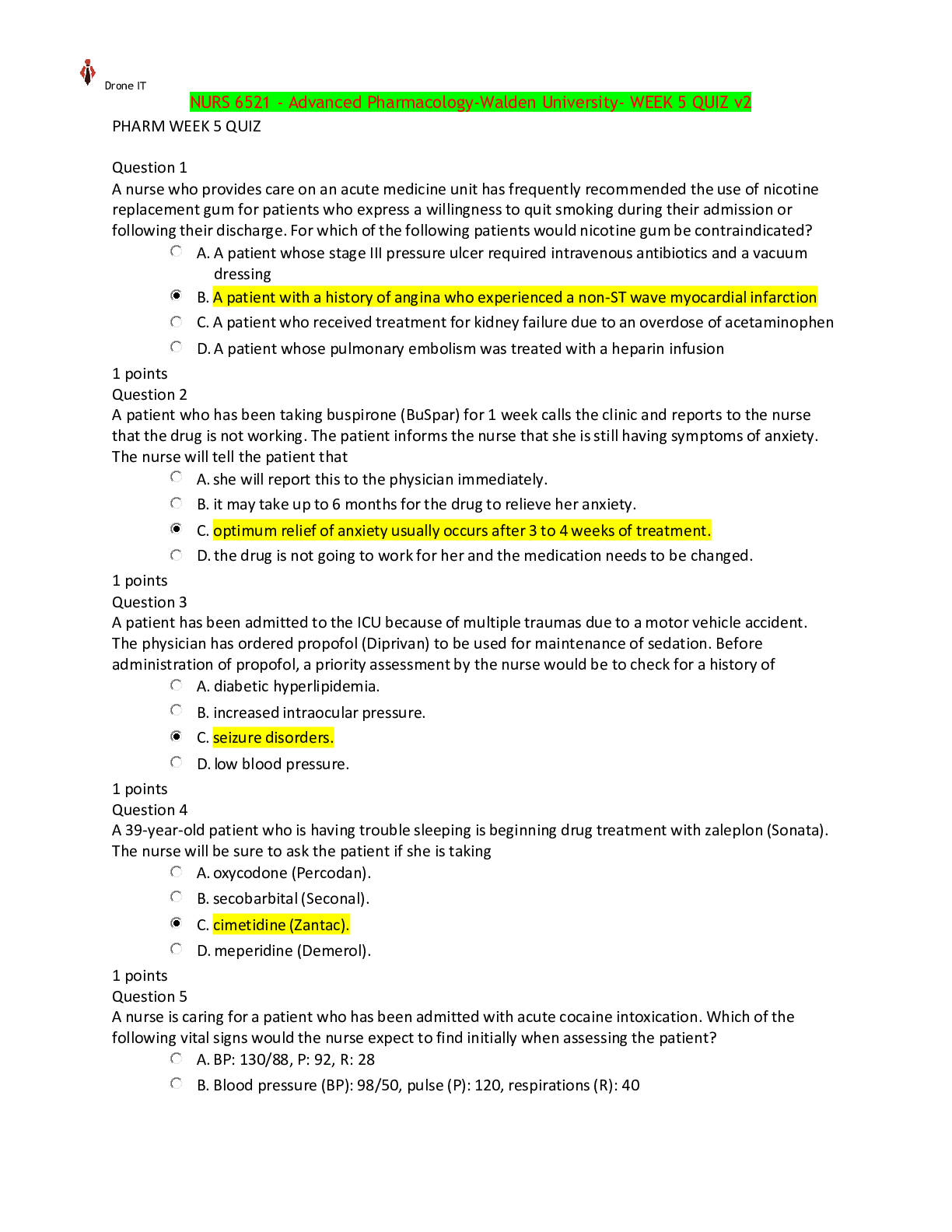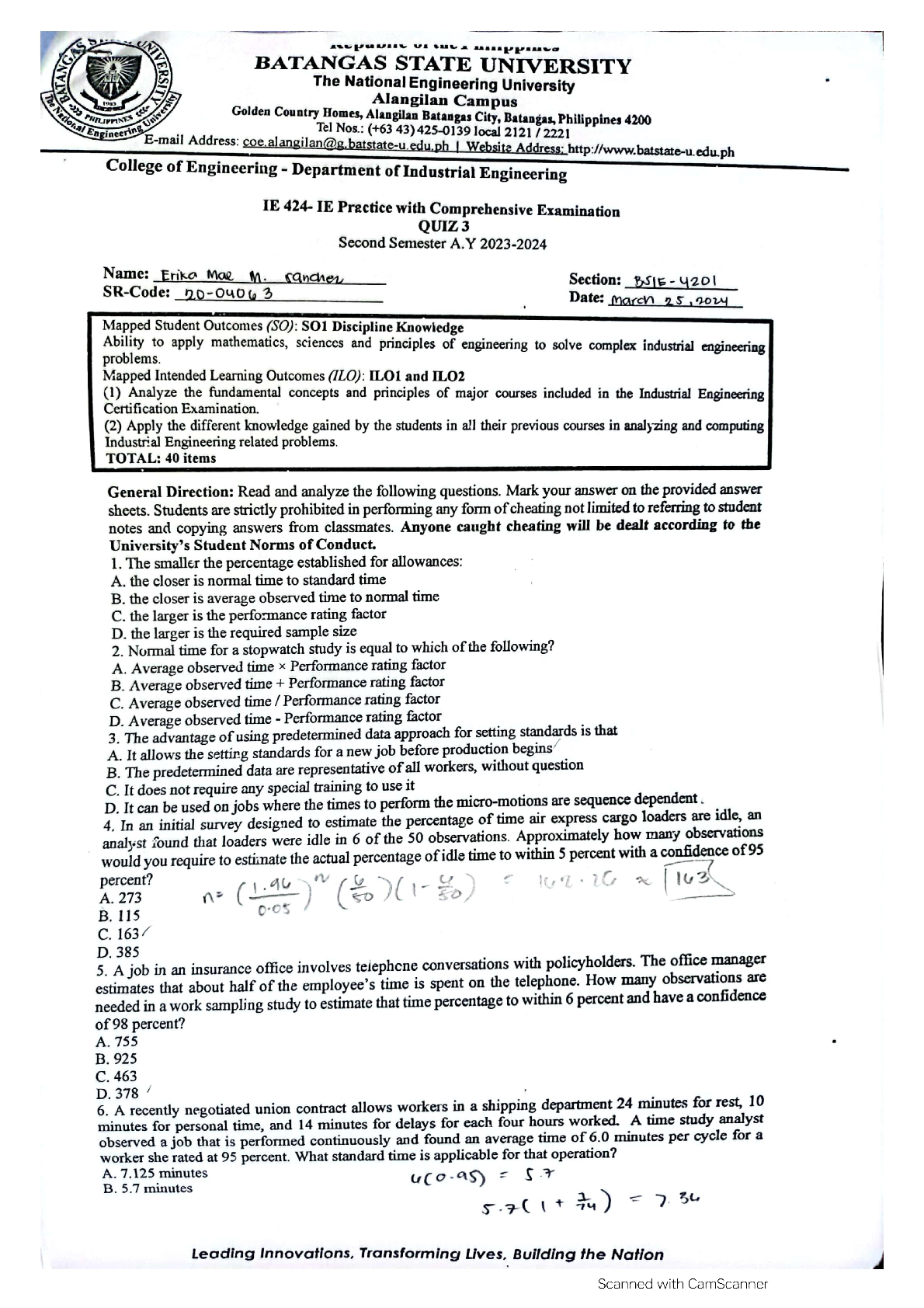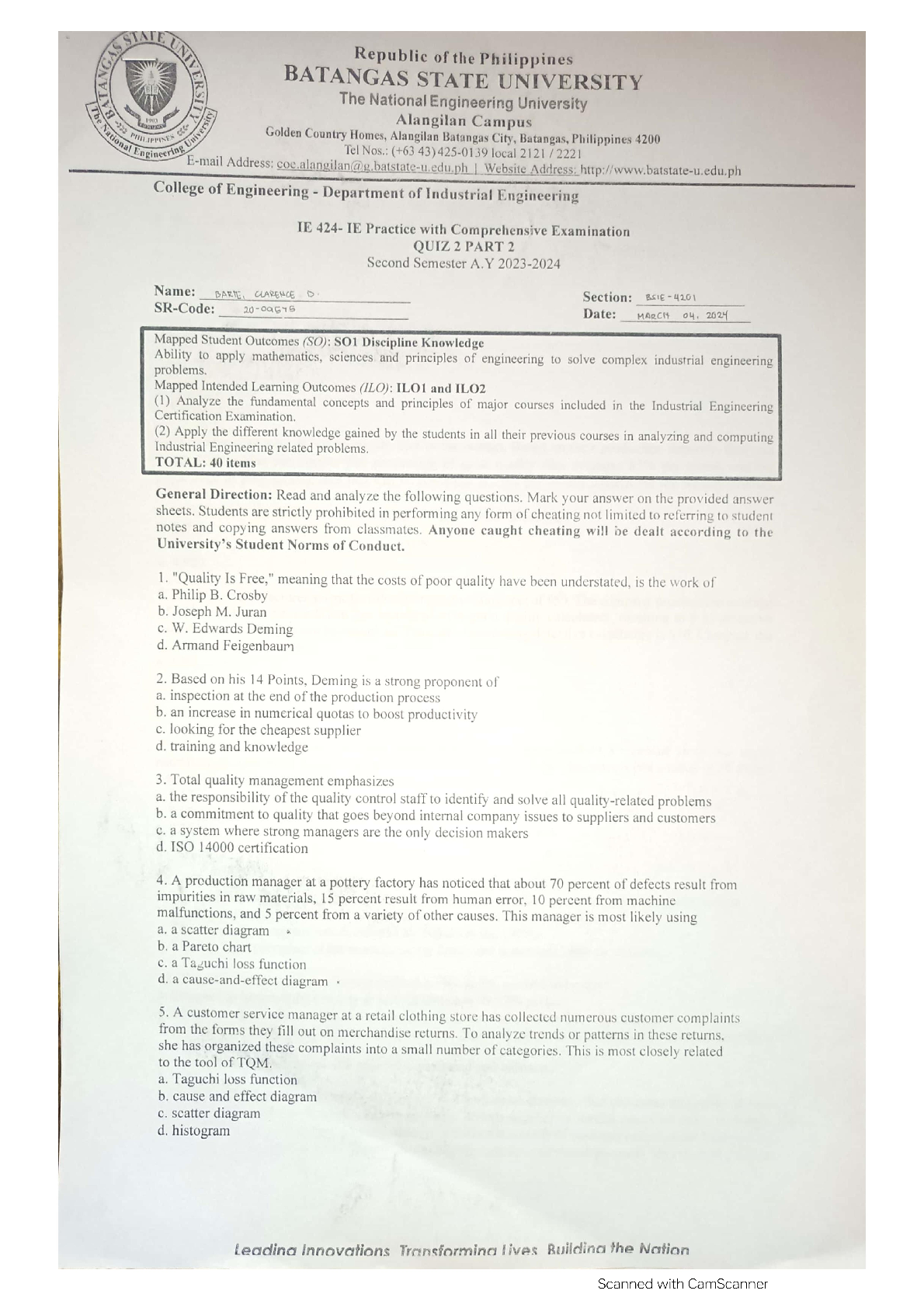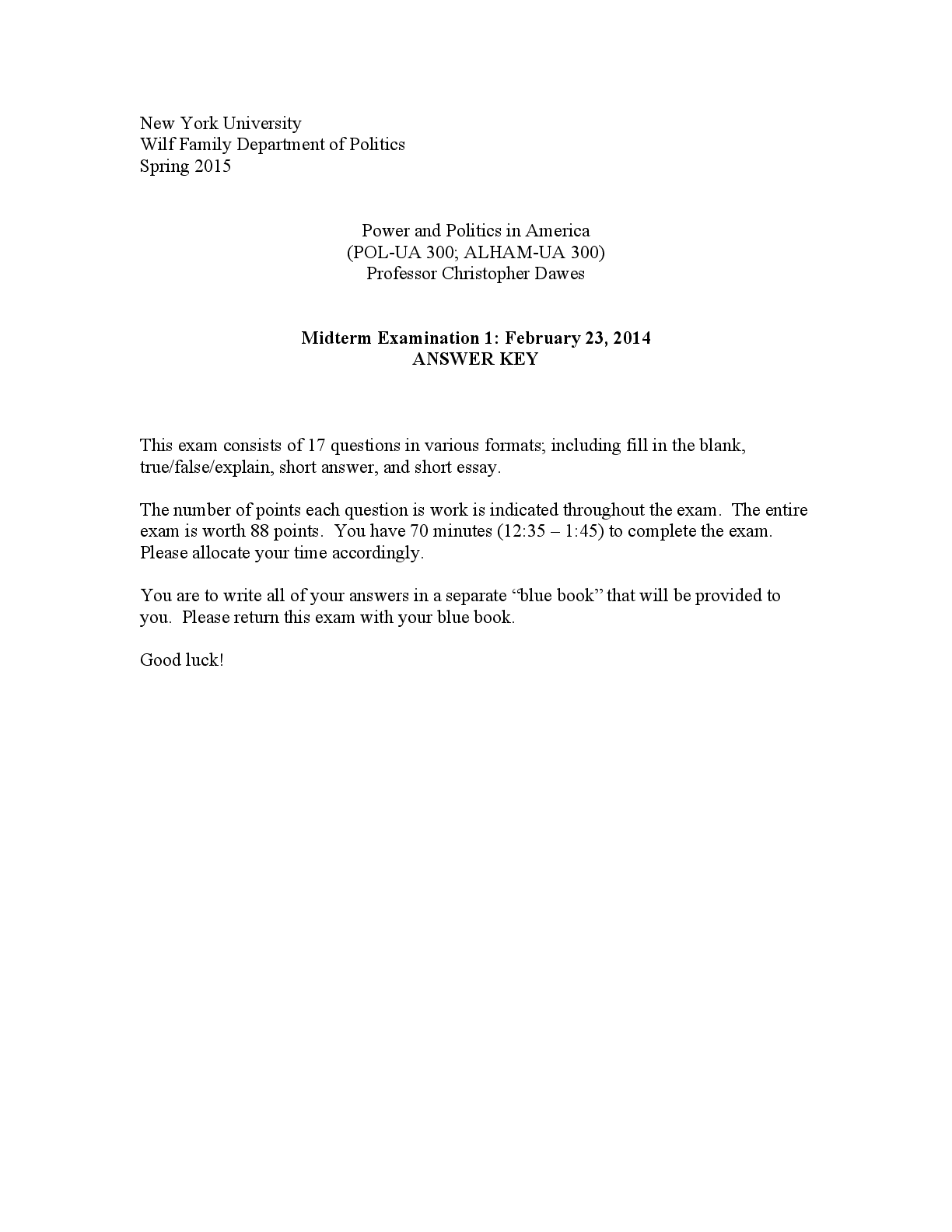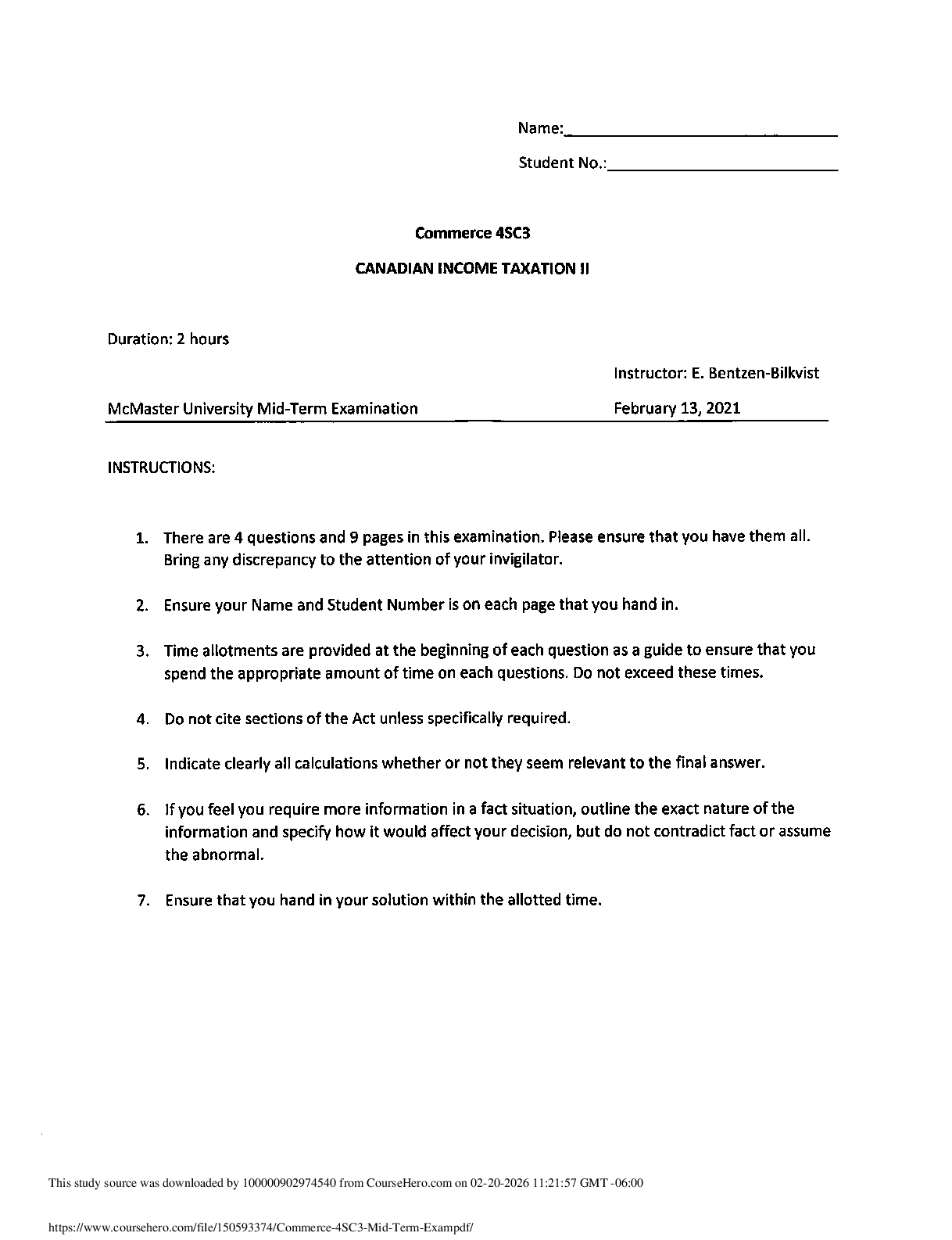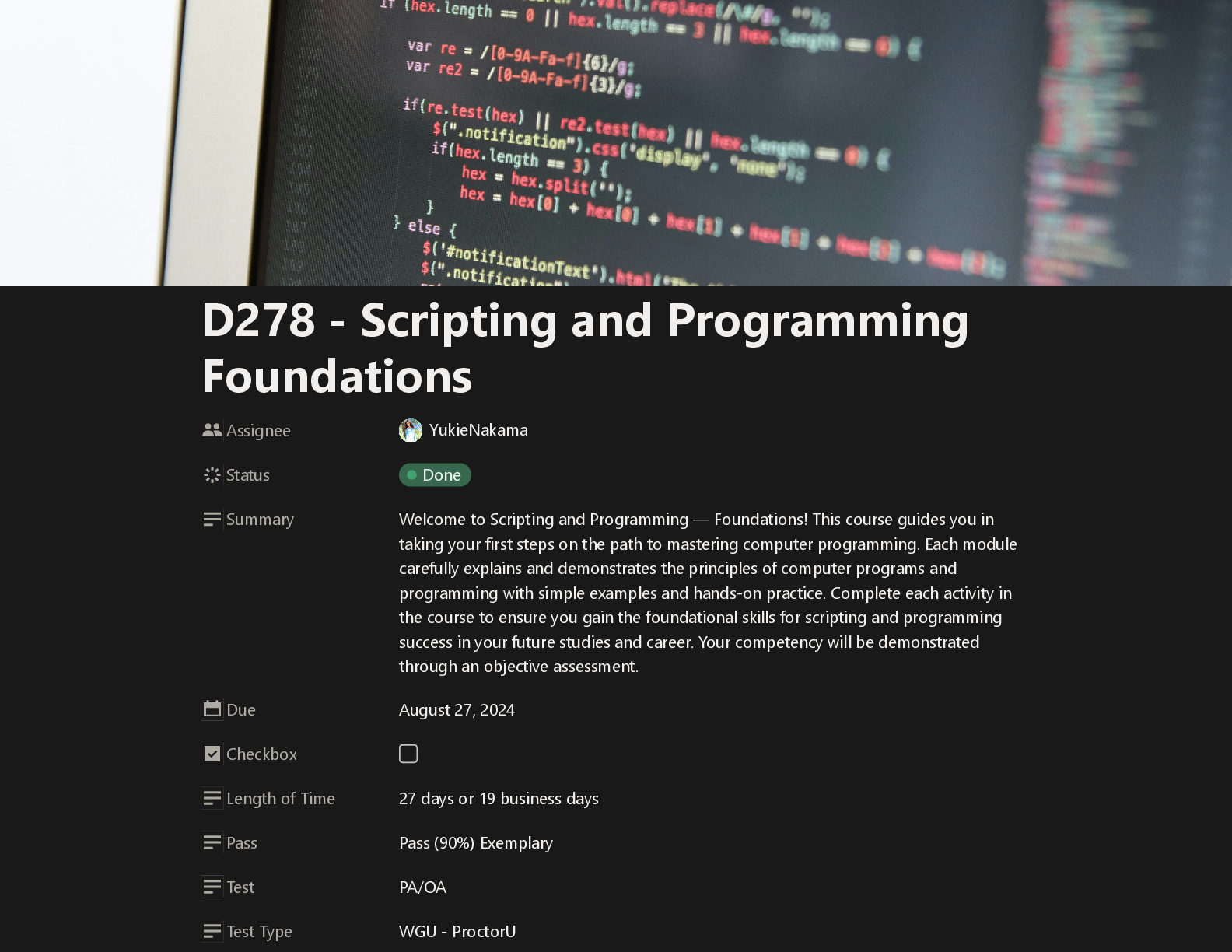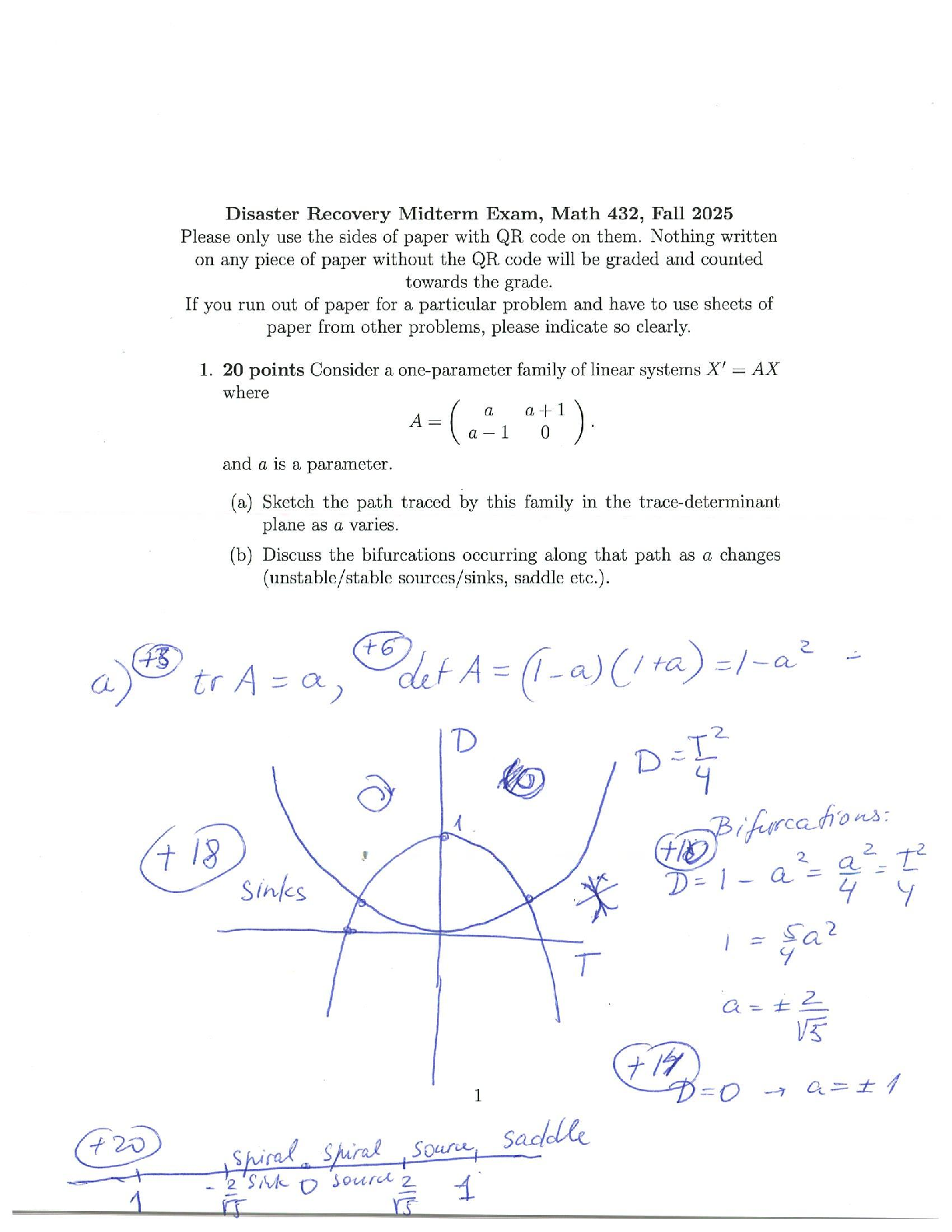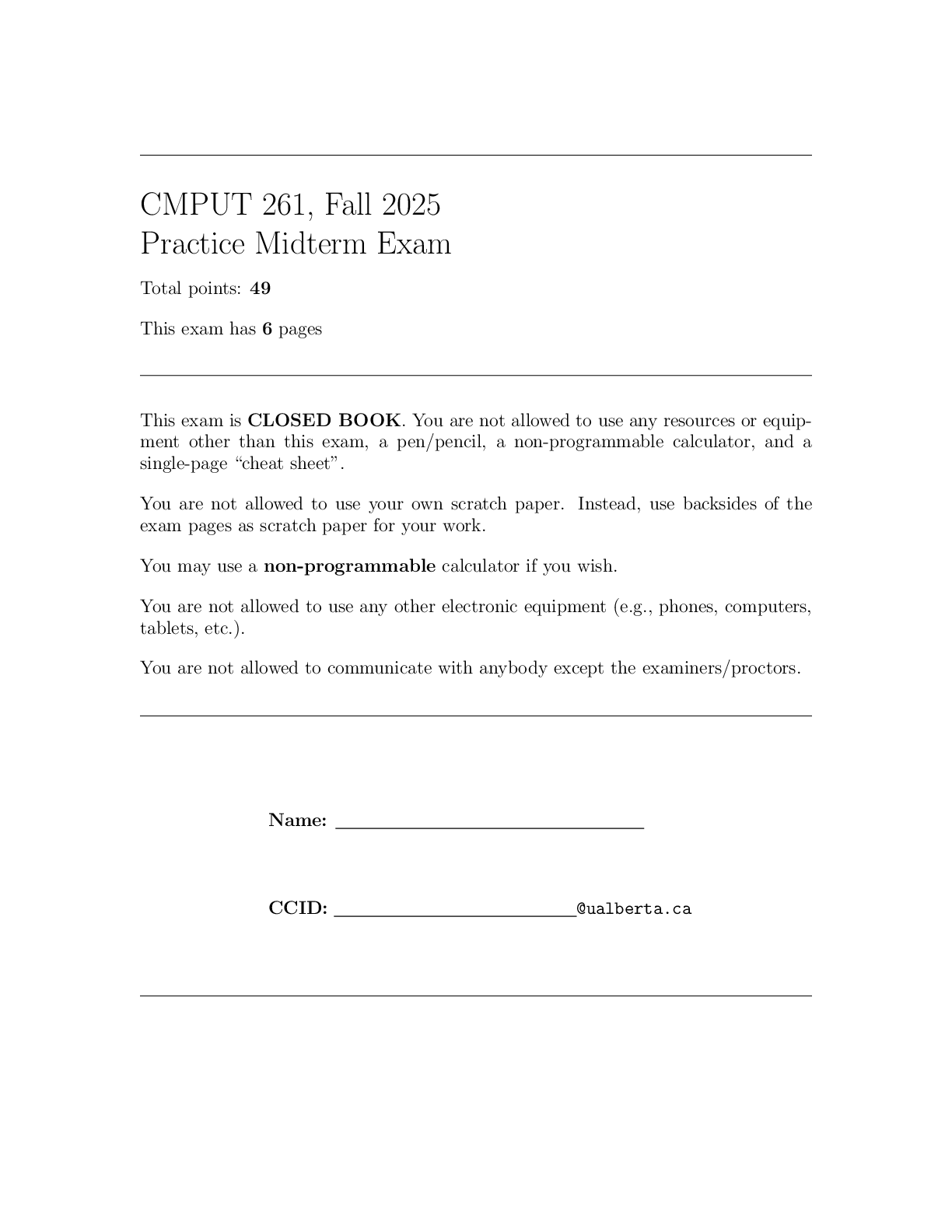NSG 6001 – Advanced Practice Nursing - Midterm exam 2Abdominal Aneurysm 1. Causes: Know the causes of an abdominal aortic aneurysm.(493) a. The proposed cause of AAA includes atherosclerosis, inflammation, mycotic infect
...
NSG 6001 – Advanced Practice Nursing - Midterm exam 2Abdominal Aneurysm 1. Causes: Know the causes of an abdominal aortic aneurysm.(493) a. The proposed cause of AAA includes atherosclerosis, inflammation, mycotic infection, inheritable connective tissue disorder, and trauma 2. Risk factors: Understand risk factors for abdominal aortic aneurysm. (493) a. risk factors for AAA include atherosclerotic vascular disease, white race, male gender, advance, hypertension, hypercholesterolemia, smoking, chronic obstructive pulmonary disease (COPD), history of hernias, family history of AAA, and presence of other aneurysms 3. Saccular: What is a Saccular Abdominal Aneurysm? (494) a. A saccular aneurysm is an asymmetric weakness or bleb on the side of the aorta. These defects result from trauma or an internal wall defect caused by an ulcer 4. Symptoms: Know the symptoms of an abdominal aortic aneurysm. (494) a. In thin patients, a supine abdominal examination may readily show a pulsatile abdominal mass. b. Chronic abdominal or back pain, ureteral obstruction CAD - Coronary Artery Disease 5. Flow: Understand the coronary flow related to CAD. a. CAD exist when coronary arteries are narrowed by atherosclerotic plaque formation, plaque rupture, or spasm. This narrowing impedes coronary blood flow, resulting in hypoperfusion of the myocardium. b. The hypoperfusion produces first diastolic, and then systolic dysfunction, with characteristic signs and symptoms, including chest pain. c. Typical ECG changes of ischemia result, although the ST-segment and T-wave changes that are central to demonstration of ischemia occur relatively late in the ischemic cascade. 6. Test: What diagnostic test is used for CAD? (488) a. The standard 1st line approach to initial testing is exercise stress test, or ETT. The patient is attached to a 12-lead electrocardiogram is continuously monitored during graded exercise. The bicycle and treadmill are the two most often used. b. Myocardial perfusion imaging, or MPI, offers a method of visualizing blood flow to the heart by injection of a radioactive cardiac-specific tracer. This improves the diagnostic accuracy of a stress test because it gives another method of detecting perfusion defects aside from measuring ST depression on the electrocardiogram. It is used when baseline ECG abnormality that would interfere with measurement of stress-induced ST-segment changes, such as left ventricular hypertrophy, bundle branch blocks, and digoxin use. MPI is also a useful tool for use with high-risk diabetic patients. Thallium chloride T1 01 and technetium Rc 99m sestamibi are the radiopharmaceutical agents used for the detection of CAD in MPI c. Cardiac Magnetic Resonance Imaging (MRI) with further technologic refinement, anticipated to provide accurate data to distinguish between stable and unstable plague and to assist with quantifying CAD, replacing the diagnostic cardiac catherization
[Show More]



